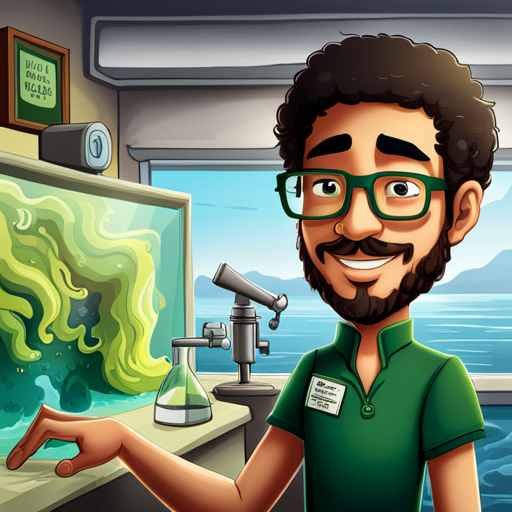Algae biofuel is a promising alternative to traditional fossil fuels, offering numerous environmental and economic advantages. As a sustainable and renewable energy source, algae biofuel is derived from microalgae, which can be grown in various environments, including saltwater, wastewater, and even on non-arable land. This flexibility reduces competition for resources with food crops and limits the environmental impact of biofuel production.
Algae biofuels also boast a high energy content and can be converted into various fuel types, such as biodiesel, ethanol, and jet fuel. Additionally, the process of cultivating algae can contribute to reducing CO2 emissions, as microalgae absorb carbon dioxide during photosynthesis. However, despite these advantages, there are several technological challenges that must be addressed in order to scale up algae biofuel production effectively.
One significant challenge is the optimization of algae growth conditions. To maximize biomass production and oil content, it is essential to provide the right combination of temperature, light intensity, nutrient availability, and other factors. Different strains of algae have unique requirements for optimal growth, making it difficult to develop a one-size-fits-all approach to cultivation. Researchers are working on identifying the most efficient strains for biofuel production and developing advanced technologies for controlling growth conditions in large-scale cultivation systems.
Another challenge lies in the harvesting and dewatering of microalgae biomass. As algae cells are microscopic and dispersed in water, separating them from their growth medium can be energy-intensive and time-consuming. Traditional methods like centrifugation and filtration often prove inefficient or costly when applied at a large scale. To address this issue, researchers are exploring alternative techniques such as flocculation, flotation, and ultrasonic separation.
Once harvested, the microalgae biomass must undergo lipid extraction to obtain the oil needed for biofuel production. Conventional solvent-based extraction methods can be expensive and environmentally harmful due to the use of toxic chemicals. Moreover, these methods may not be suitable for all types of algae, as different strains have varying cell wall structures that can affect extraction efficiency. To overcome this challenge, researchers are investigating alternative extraction techniques such as mechanical disruption, enzymatic hydrolysis, and supercritical fluid extraction.
After lipid extraction, the remaining biomass should not go to waste, as it contains valuable nutrients and compounds that can be used in other applications. The concept of an algae biorefinery aims to maximize the value of microalgae by converting the residual biomass into a variety of products, such as animal feed, fertilizers, and chemicals. However, developing efficient and cost-effective biorefinery processes is another challenge that must be addressed in order to make algae biofuel production more economically viable.
Lastly, there are regulatory and market-related challenges that need to be considered. As the biofuel industry is heavily influenced by government policies and incentives, establishing clear regulations and support mechanisms is crucial for promoting investment in algae biofuel production. Furthermore, the development of infrastructure for distributing and blending biofuels with conventional fuels is essential for ensuring market acceptance and widespread adoption.
In conclusion, while algae biofuel offers a sustainable and renewable energy source with numerous benefits over traditional fossil fuels, several technological challenges must be overcome to scale up production effectively. Addressing these challenges will require continued research and innovation in areas such as cultivation optimization, harvesting methods, extraction techniques, and biorefinery processes. By tackling these obstacles head-on, the potential for algae biofuel to become a major player in the global energy landscape can be realized.


